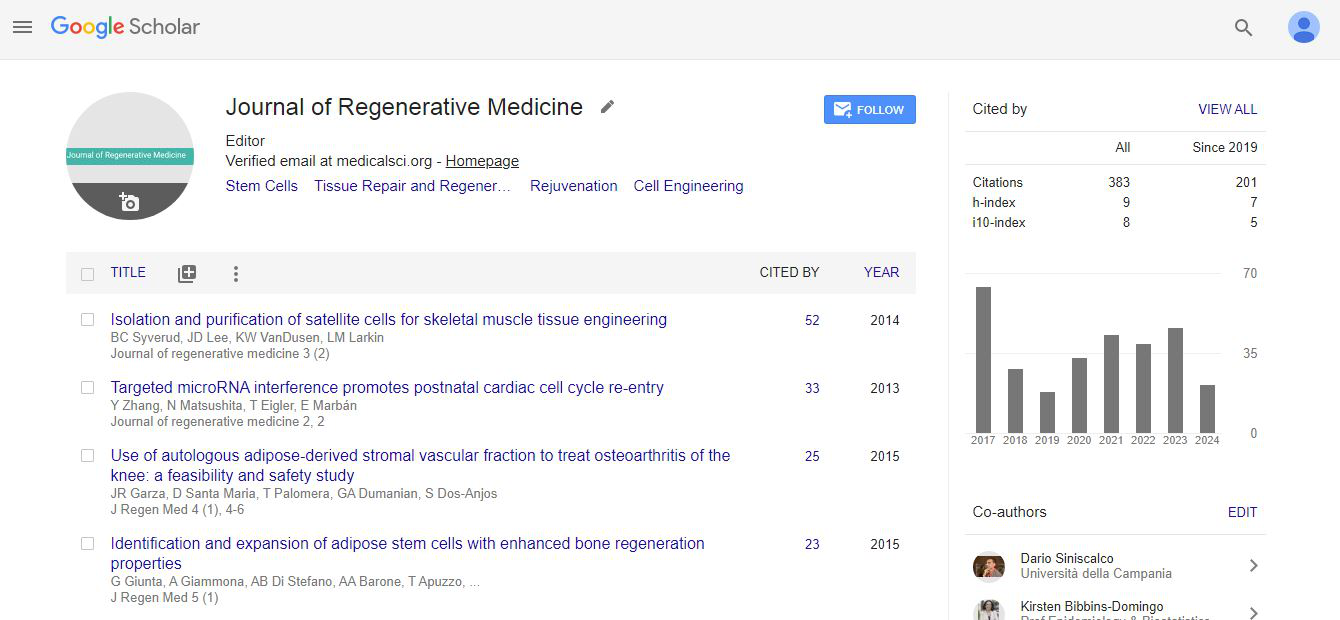Role of ozone therapy in management of delayed wound healing, case series
Hanie Salah Eldin Ibrahim
Military Medical Hospital, Egypt
: J Regen Med
Abstract
Statement of the Problem: Wound healing is a challenging problem that affects 20 million annually worldwide. Chronic wounds include, but are not limited, to diabetic foot ulcers, venous leg ulcers, and pressure ulcers. In addition, many pathologies and comorbidities may make chronic wounds more refractory. So, the results of the standard of treatment are not optimal. As a result, there is an urgent need for alternative treatment options. Researchers have reported usefulness of ozone therapy in treating chronic wounds. Indications of its therapeutic application are increasing, and evidence for its antibacterial and proliferative activity is growing. Evidence suggests its efficacy in treating chronic wounds. Many studies have proven that O3 therapy can be a safe, efficient, and highly potential therapeutic tool for wound healing. Ozone therapy promotes the wound healing via partially due to the increasing of endogenous growth factors in the local wounds and its antioxidant effects. The purpose of this study: To demonstrated effectiveness of ozone therapy in treating problematic wounds. Methodology & theoretical Orientation: Ozone can be administered systemically and topically. One form of systemic therapy is through rectal insufflation, while topical therapy is generally used as a wound cleanser, ozone bagging, ozonized olive oil and local ozone wound injection. In our study, we used those methods to treat a series of (5) cases of different chronic wounds. Findings No adverse effects and complications during ozone therapy were observed. ozone therapy enhanced wound healing in problematic wound. Conclusion & Significance: Ozone treatment markedly accelerated the improvement of the wound area. ozone therapy is very effective, cheap, simple, well tolerated, and easily reproducible but underutilized tool. It does not require huge infrastructure or complex equipment. Also, no recurring cost of consumables is involved making it a very suitable tool to promote wound healing especially in diabetic infections in resource-constraint regions.
Biography
Hanie Salah Eldin Ibrahim is hyperbaric oxygen therapy consultant and ozone therapy expert. Started his career 30 years ago as general surgeon before shifting to oxytherapy at 2006. With special interest in wound care management by complementary hyperbaric & ozone therapy. He is a registered physician in DHA, and supervising the ozone therapy units in military hospitals in Alexandria, Egypt. He approached good results in wound management by oxytherapy specially in diabetic wound infections and limb salvage.
 Spanish
Spanish  Chinese
Chinese  Russian
Russian  German
German  French
French  Japanese
Japanese  Portuguese
Portuguese  Hindi
Hindi 